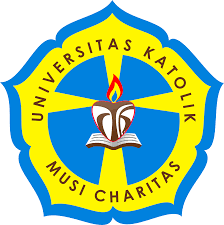Pentingnya Pelatihan Pengelolaan Keuangan Pribadi Bagi Karyawan Umkm Pada Masa Pandemi Covid-19
Abstract
Managing personal finances for some people is an activity that doesn't need to be studied anymore, because it is considered an activity that we do every day. However, we do not realize that there is still much we do not know to achieve proper financial management. In order to understand good financial management, sufficient knowledge of financial management is needed. Personal financial literacy is very important in supporting the realization of individual goals. By managing personal finances, each individual will know the goals to be achieved, and make optimal use of the management of financial resources to achieve these goals. This community service activities are carried out with the aim of enabling activity participants to manage their personal finances. Skills in managing personal finances are very important in everyday life to avoid financial difficulties. Especially during the current Covid-19 Pandemic, where many employees experienced a decline in income. Participants in this activity were MSME employees, namely 20 employees of the Panhead Café & Bar. The stages of this Community Service activity consist of three stages, namely the preparation stage, the implementation stage and the evaluation stage. After the training was carried out, the result was that as many as 65% of the total activity participants, namely 13 out of 20 participants, were able to implement their personal financial management according to their planned cost allocation which refers to three types of expenses, namely necessities (65%), wants ( desire) (5%), and saving (savings) (30%). As much as 20% of the total number of activity participants, namely 4 people, have saved but the percentage of saving is still below 30% of their total income. As much as 15% of the total activity participants, namely 3 people, do not save but buy goods that are consumptive in nature
References
Arijanto, A. (2010). Dosa-Dosa Orang Tua Terhadap Anak Dalam Hal Finansial. Elex Media Komputindo.
Djani, D. (2020). Balancing Worship & Finance Management during Ramadhan. https://cohive.space/blogs/tips-manajemen-keuangan-di-masa-pandemi/
Gitman, L. (2002). Principle of Finance (11th ed.). Prentice Hall.
Herawati, N. T. (2016). Pelatihan Dasar-Dasar Keuangan Untuk Meningkatkan. Seminar Nasional Pengabdian Kepada Masyarakat.
Morelli, N. (2015). Challenges in Designing and Scaling up Community Services. . . The Design Journal, 18, 269–290. https://doi.org/https://doi.org/doi.org/10.2752/175630615X14212498964394
Natalia, D. E., Murni, S., & Untu, V. N. (2019). Analisis Tingkat Literasi Dan Pengelolaan Keuangan Pribadi Mahasiswa Di Fakultas Ekonomi Dan Bisnis Univeristas Sam Ratulangi. Jurnal EMBA: Jurnal Riset Ekonomi, Manajemen, Bisnis Dan Akuntansi, 7(2), 2131–2140. https://doi.org/10.35794/emba.v7i2.24018
Novi Yushita Amanita. (2017). 14330-35425-1-Sm. VI, 15.
Sina, P. G. (2014). Motivasi Sebagai Penentu Perencanaan Keuangan (Suatu Studi Pustaka). Jurnal Ilmiah Akuntansi Dan Bisnis, 9(1), 42–48.
















_1.png)




